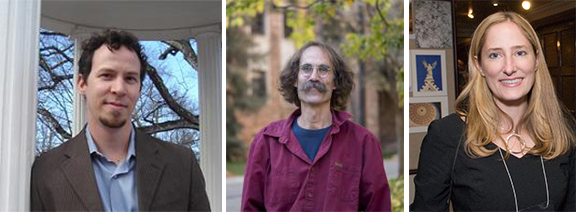
What does it matter that some have so very much and some have so very little? The symposium “Inequality of Income and Wealth” will show just how much disparity of income and wealth hurts us all. The symposium, a collaboration between the Osher Lifelong Learning Institute at the University of Nebraska (OLLI) and the Winter Lecture Series of the Unitarian Church of Lincoln, will be held on Saturday, Oct. 21, 9 a.m. to 2:30 p.m. at the University of Nebraska East Campus Union, 1705 Arbor Drive, Lincoln, Neb.
The event is open to the public and registration is required. The fee is $20 and includes lunch. The registration deadline is Friday, Oct. 13. Register online at http://go.unl.edu/3yup or call the OLLI office at 402-472-6265.
“The more people talk about inequality, the more we see it as perhaps the most important issue of our time,” said retired UNL psychology professor Dick Dienstbier, one of the symposium organizers. “It tends to ruin democracies.”
Three national speakers, who will present in the morning, will discuss the causes and consequences of inequality from psychological, environmental and economic perspectives. They are:
Keith Payne, professor, Psychology, University of North Carolina-Chapel Hill. Author of “The Broken Ladder: How Inequality Affects the Way We Think, Live and Die”
Liam Downey, associate professor, Sociology, University of Colorado, Boulder. Author of “Inequality, Democracy, and the Environment.”
Sarah Anderson, director, Global Economy Program, Institute for Policy Studies, Washington D.C. Her research interests include a range of international and domestic economic issues, including inequality, Wall Street reform, CEO pay, taxes, labor and international trade and investment. She is a well-known expert on executive compensation.
During the afternoon session, a panel of Nebraska representatives will discuss inequality at the local level. They are:
Lori Siebel, president/CEO, Community Health Endowment of Lincoln
Chrissy Tonkinson, research coordinator, Voices for Children in Nebraska
Wes Peterson, professor, Agricultural Economics, UNL
Three months ago, the Community Health Endowment of Lincoln (CHE) updated Lincoln poverty maps and weighed factors such as identifying areas where individuals had access to healthy food choices.
The first of the two maps looked at Lincoln’s poverty level in 1980, when 18 census tracts had at least 10% of residents living in poverty. The second looked at Lincoln poverty from 2011-2015 and revealed a “suburbanization” of poverty with 38 census tracts having at least 10% of residents living in poverty.
In her work with the CHE, CEO Lori Seibel sees how poverty affects health at the local level. “The stress and adversity of poverty can be toxic, creating complex, long-lasting physical and mental health challenges for individuals and families,” she said.